221 best icebreaker questions for creating genuine connections

When a group of people comes together for the first time, it can take a little time for them to get to know one another and feel comfortable in each other’s presence. Icebreaker questions and games are an effective way to speed up the process and create a safe space for people to start working together.
In this post, we’ll share the best icebreaker questions for work and any other scenarios where you might want to help people get to know each other. We’ll also share some tips for ensuring your icebreakers are productive and help the group bring themselves to the table without anxiety or frustration. Let’s jump in!
What are Icebreaker Questions?
Want to go beyond asking someone what they did at the weekend? Icebreaker questions are conversation starters designed to break down social barriers, encourage interaction and help individuals get to know one another. When chosen well, icebreaker questions can help supercharge a team building process and open up conversations that can create bonds and connections.
They are particularly useful when people are meeting for the first time, such as team-building activities, networking events or virtual workshops and meetings. They can also be effective when kicking off a project or injecting something different into a recurring team meeting. These questions are meant to be light-hearted, inclusive, and thought-provoking, fostering a positive and open atmosphere for communication.
Icebreaker questions range from fun and creative prompts to more reflective and personal inquiries, providing participants with opportunities to share aspects of their personalities, experiences, and perspectives. They can also be incorporated into dynamic games like those featured in our icebreaker games collection.
Whatever the format, the best icebreaker questions create a simple and effective opportunity to get people talking and help people feel welcome and included at the start of a session.

What Makes a Good Icebreaker Question?
A good icebreaker question possesses certain qualities that contribute to its effectiveness in initiating meaningful conversations. Here are some key attributes:
- Relevance: The question should be relevant to the context and purpose of the gathering. Whether it’s a team meeting, a virtual workshop, or a social event, the question should align with the overall objectives.
- Inclusivity: An ideal icebreaker question is inclusive, ensuring that everyone in the group feels comfortable participating. Avoid questions that may make individuals feel singled out or uncomfortable.
- Versatility: A good icebreaker question is adaptable to various settings and audiences. It should be versatile enough to spark engagement among diverse groups with different interests and backgrounds.
- Open-ended: Questions that invite more than a simple “yes” or “no” answer encourage deeper and more meaningful discussions. Open-ended questions provide individuals with the opportunity to share more about themselves.
- Positive Tone: Icebreaker questions should set a positive and light-hearted tone for the interaction. Funny icebreaker questions or humor can be a great addition, but it’s crucial to be mindful of cultural sensitivities and preferences.
- Icebreaking Potential: The primary goal is to break the ice and create a relaxed environment. A good icebreaker question should help people feel more at ease, paving the way for smoother communication and collaboration.
Often, the best icebreaker is one that sets the stage for the workshop or meeting to come. They typically help a group start thinking about the topic or theme of the session before the facilitator then guides the group to deeper discussions or activities.
In SessionLab, it’s easy to create a structured session flow in minutes. Create your ideal meeting agenda by dragging and dropping blocks into place in the Session Planner. Easily transition from an icebreaker into a group discussion and add additional activities and items as you need them!
Ensure your session stays on time by adding clear timing to your chosen icebreaker and additional activities. And when you’re done, create a beautiful PDF or Powerpoint export to help you facilitate with confidence.
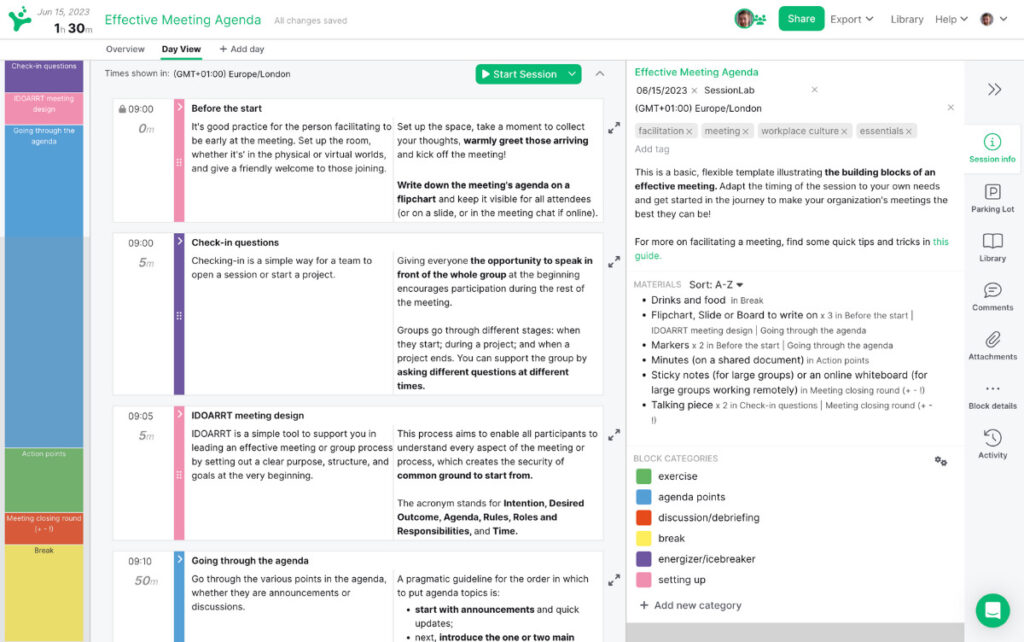
Team Icebreaker Questions
Even established teams can benefit from using icebreakers to get to know each other more deeply and open up a conversation about they’d like to work together.
These questions are especially effective when used alongside team building activities where you might focus on helping align the team or improve collaboration.
- If our team was a landscape, what would it be and why?
- What would you like the team to look like in one year from now?
- What fictional team from a movie or TV show do you think our team resembles the most?
- If our team had a theme song, what would it be?
- Where in the world would you most like to go with your team and why?
- Share a team achievement or project you’re most proud of and why.
- What’s one word you would use to describe our team culture?
- If our team were a sports team, what sport would we play, and what would be our team name?
- Share a team-building activity you’ve enjoyed in the past and why it was memorable.
- If our team had a mascot, what would it be, and why?
- What’s one skill or talent you bring to the team that others might not know about?
- If our team were a superhero squad, what powers would each team member have?
- If you were to give your team an alignment score from 1-10, what would it be and why?
- What does the rest of the team need to know this week?
- What’s the best advice about how to work well with others you’ve received?
- How would you prefer to receive feedback from someone else on the team?
- What piece of gratitude would you like to express to someone else on the team?
Want to get your team on the same page and align on how you’d like to work together? The Team Canvas Workshop is an effective session where you and your team will co-create your working culture.
You’ll cover your team goals, roles, responsibilities, rituals and more while working towards creating a more cohesive and connected team.
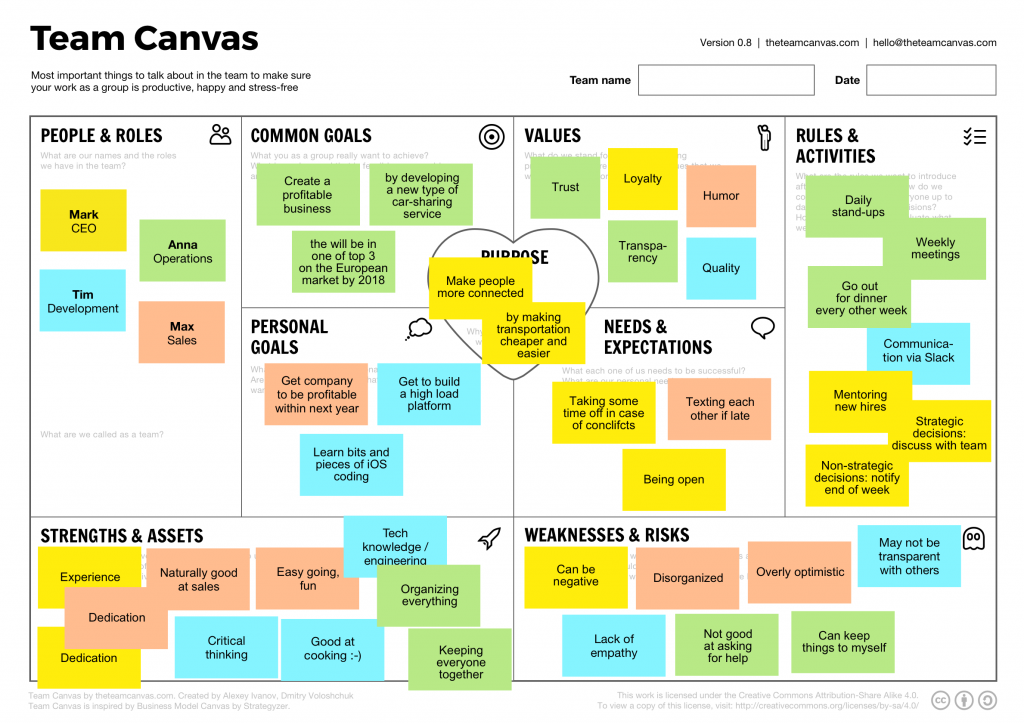
Check-in Icebreaker Questions
Checking in at the beginning of a workshop or meeting is something many teams miss, but it can be an essential element of a productive session.
These check-in icebreaker questions can help set a positive tone for meetings, allowing team members to share their current state of mind and create a supportive atmosphere.
They can be especially helpful for team leaders and facilitators who may want to gauge how the group is feeling before launching into deeper topics.
- What are you hoping to get from the session today?
- On a scale of 1 to 10, how would you rate your energy levels today?
- Share one thing you’re looking forward to this week.
- If today were a weather forecast for your mood, what would it be?
- What’s a small victory or accomplishment you’ve had recently?
- Share one positive aspect of your day so far.
- If your day had a theme song, what would it be?
- What’s something that made you smile today?
- Is there a goal you’re aiming to achieve by the end of the day?
- On a scale of 1 to 10, how would you rate your work-life balance this week?
- Share one thing you’re grateful for right now.
Most effective workshops and meetings start with an icebreaker of some description.
Whether it’s in the form of a question or an experiential icebreaker activity, checking in is an effective way of ritually opening a session. Try Hyper Island’s Check-in/Check-out activity to bring this concept to your next session.
Fun Icebreaker Questions
For many meetings, the intention of an icebreaker is to loosen people up and help create a lighthearted atmosphere. These funny icebreaker questions are designed to do just that.
You might use these fun icebreaker questions in a round-robin format to kick-off a team meeting or simply to break the ice at a networking event without resorting to talking about your job.
- How would your primary school teacher have described you?
- What’s the most unusual talent or party trick you have?
- If you were a meme, which one would you be?
- What’s your plan in the event of a zombie apocalypse?
- Share a funny or embarrassing work story that still makes you laugh.
- If you could swap lives with a cartoon character for a day, who would it be?
- What’s your weirdest food combination that you secretly enjoy?
- If aliens visited Earth and you were the first person they met, how would you explain your job?
- What’s the worst ice cream flavor you can come up with?
- What item of clothing are you wearing that could start a new fashion trend?
- Share a joke or funny anecdote related to your profession.
- What’s the silliest goal you’ve ever set for yourself?
- What actor would play you in a film about your life?
- What’s the last TV show or film you hate-watched?
Icebreaker games are a great way to help your team have fun and get energized at the beginning of a session.
If you’d prefer using a more experiential activity to get your team engaged and having fun, try a simple icebreaker activity like Soundball or a Rock, Paper, Scissors tournament to generate some laughter while warming up your group.
This or That Icebreaker Questions
Would you rather and this or that style icebreaker questions are a favourite of many teams who want a quick way to get to know a little more about someone and not get too deep. These are typically fun icebreaker questions that elicit silly answers and can be run in pairs or larger groups.
As with any of the icebreaker questions on this list, be sure to consider your audience with these questions. What might work well for college students might not be right for a group of executives. Even better, tailor your choice of question to start the process of engaging your group in the topic of your session.
- Coffee or tea?
- Morning person or night owl?
- Beach vacation or mountain retreat?
- Fiction or non-fiction?
- Cat person or dog person?
- Sweet or savory?
- Phone call or text message?
- Introvert or extrovert?
- Early bird or night owl?
- City living or countryside escape?
- Netflix or YouTube?
- Reading or watching TV?
- Summer or winter?
- Indoor or outdoor activities?
- Movie theater or streaming at home?
- Cake or pie?
- Android or iPhone?
- Travel by car or plane?
- Comedy or drama?
- Facebook or Instagram?
- Home-cooked meal or takeout?
- Fictional or documentary films?
- Mac or PC?
- Music or podcasts?
- Formal or casual attire?
- Pen and paper or digital notes?
- Classical or pop music?
- Sunrises or sunsets?
- Books or e-books?
- DIY or hire a professional?
- Pizza with pineapple or pizza without cheese?
- Sneezing glitter or farting confetti?
- Always feeling itchy or always feeling sticky?
- Communicate only in GIFs or speak in rhymes for a day?
- Only be able to whisper or only be able to shout?
- Have a pet dinosaur or a pet unicorn?
- Wear socks with sandals or a clown wig to work?
- Have a personal theme song that plays everywhere you go or have a laugh track follow you?
- Eat chocolate-flavored broccoli or broccoli-flavored chocolate?
- Have a third eye or a third arm?
- Communicate with interpretive dance or through charades?
- Live in a house made of jello or have a floor made of bubble wrap?
- Accidentally send a text to your boss that was meant for your friend or to your friend that was meant for your boss?
- Have a talking pet fish or a pet parrot that only speaks in movie quotes?
- Eat dessert for every meal or never have dessert again?
- Be able to teleport but always end up in a random bathroom or fly at a snail’s pace?
- Have a conversation with a talking plant or a talking lamp?
- Accidentally like a post from your ex on social media or accidentally send a screenshot of your conversation about them to them?
- Speak in puns for a day or use emojis instead of words?
- Have the ability to mute people in real life or fast forward through awkward situations?
- Eat a sandwich with every condiment imaginable or a plain sandwich with no condiments at all?
- Sneak into a private VIP party or accidentally photobomb every picture you’re not supposed to be in?
- Have a personal theme song that plays loudly every time you enter a room or a drumroll before you speak?
- Eat a bowl of cereal with ketchup or a peanut butter and pickle sandwich?
- Dance like no one is watching whenever someone says your name or burst into song when you hear a specific word?
- Be chased by a swarm of bees or a troop of angry squirrels?
- Have a wardrobe that only consists of neon colors or mismatched socks every day?
- Always have a piece of food stuck in your teeth or a perpetual bad hair day?
- Communicate only through interpretive dance or have your life narrated by Morgan Freeman?
- Have a pet rock that tells dad jokes or a pet cloud that makes puns?
Want to go further in this format? Stand up if is an effective icebreaker game that works in a similar manner to this or that icebreaker questions, but can be used to engage entire groups at the same time.
Icebreaker Questions for Work
Whether you’re running an all-hands meeting or training session at work, there are times when you may want to break the ice in your group and prepare them for the session ahead.
These icebreaker questions for work are especially effective at getting groups to start thinking about workplace culture and their role in an organization. Try bringing them your next culture workshop to get things started on the right foot.
- What did you want to be when you were growing up?
- If you could choose any historical figure to join the company, who would it be?
- If you could change the name of the company, what would you change it to?
- What’s the first thing you do when you start work in the morning?
- What’s the most unexpected skill or experience you’ve brought to your current role?
- If you could redesign our office space, what changes would you make?
- Share a challenge you’ve overcome at work and the lessons you learned.
- If you had a work-related superpower, what would it be, and how would you use it?
- What’s your favorite aspect of your job, and why?
- If you could implement one new workplace policy, what would it be?
- What’s the best piece of career advice you’ve ever received?
- Share a project or accomplishment that exceeded your expectations.
- If you were the CEO for a day, what changes would you make?
- What’s one thing you wish everyone knew about your role or department?
- What’s the hardest thing about your role?
- What was your worst ever job?
- What was your first job and what did you learn from it?
- Which of your competitors do you most admire and why?
Workshops designed to improve workplace culture or bring a group together to solve key organizational challenges can especially benefit from questions like the above.
Such workshops also benefit from a clear structure and robust planning. Discover how to create and run an effective workshop in our comprehensive guide.
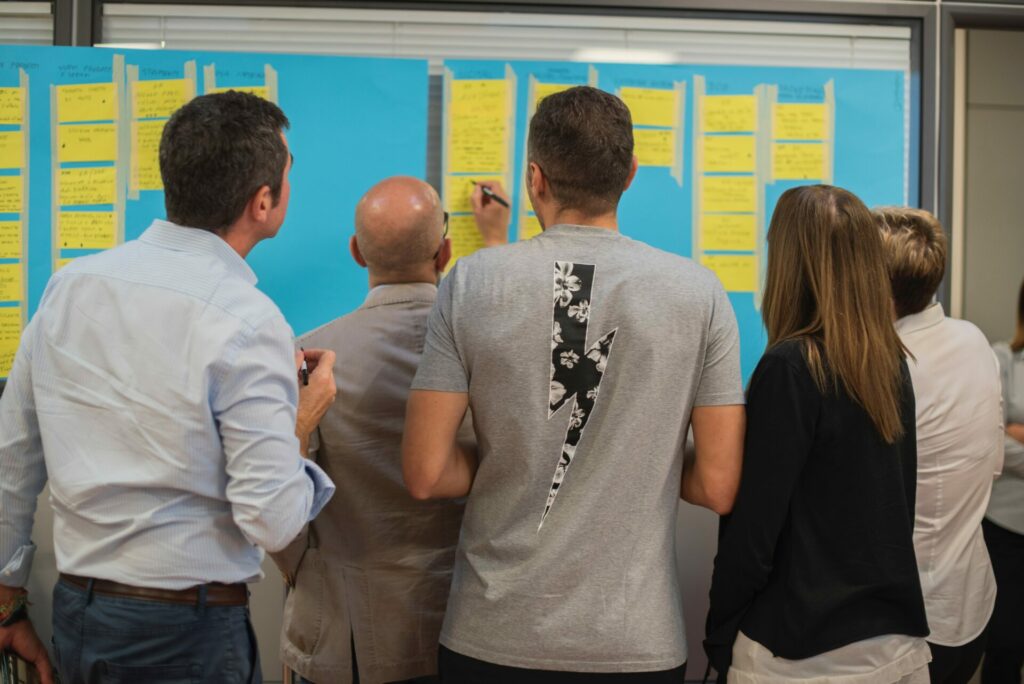
Unique Icebreaker Questions
When we’re able to reveal something unique about ourselves to the people around us, it can pave the way for deeper connections and bonds. They’re also a great way to get people to think outside of the box and engage the creative part of their brain.
If you’re running an ideation workshop or brainstorming session, these questions a great way to warm up your group and help them to start thinking creatively.
- If you could have a conversation with any animal, which one would it be, and what would you talk about?
- If you could eat one food for the rest of your life, what would it be?
- What hidden talents or skills do you have that people might not expect from you?
- If you could choose any historical era to live in for a week, which one would it be, and why?
- Describe your job using only emojis.
- If your life was a movie genre, what would it be?
- Share a unique fact about your hometown or place of origin.
- If you could have a dinner party with three fictional characters, who would they be?
- How many countries have you visited and which was your favorite?
- Describe your personality using three unrelated objects.
- What’s your favorite word in a language other than your native one?
- If you could be an expert in any field overnight, what would it be?
- If you could have a conversation with any historical figure, but they had to wear a silly hat the entire time, who would it be?
- Describe your current mood using only emojis.
- If you could live in any fictional world, which would it be and why?
- Share a funny childhood nickname or a story related to your nickname.
- If you were a flavor of ice cream, what would you be, and why?
- If your life had a theme song that played every time you entered a room, what would it be?
- Invent a holiday and describe its traditions and celebrations.
- Share a made-up fact about yourself, and let others guess if it’s true or false.
- If you could have a conversation with an alien, what’s the first thing you would ask them?
- What’s your earliest childhood memory?
- If you were a punctuation mark, which one would you be, and why?
- Share a talent you have that no one at work knows about.
- If you could bring one fictional character to life for a day, who would it be, and what adventures would you have?
- Describe your dream job title and what it entails.
- If you were a type of transportation, would you be a hot air balloon, a submarine, or a hovercraft?
- Share a unique item from your bucket list that others might find surprising.
- If you could have a dinner party with any three people, living or dead, who would they be, and what’s on the menu?
- Describe your work style using a weather metaphor (e.g., I’m a brainstorm with occasional creative thunderstorms).
- If your pet could talk, what do you think they would say about you?
- If you could swap lives with any fictional character for a week, who would it be, and why?
- Share a strange or interesting fact about your hometown or place of origin.
- If you had a magic remote control that could pause, rewind, or fast-forward your day, how would you use it?
- Describe your ideal day off without using the words “work” or “responsibilities.”
- Share a metaphor for your life using an object commonly found in a kitchen.
- If you were a plant, what type of plant would you be, and why?
- Invent a new word and provide its definition.
- If you could have a conversation with your future self, what advice would you ask for?
- Share a fictional scenario: If you were the protagonist in a movie, what would be your mission or quest?
- Describe your dream house workspace—include colors, decorations, and any unique features.
- If you could have a one-hour conversation with any animal, which one would it be, and what would you discuss?
- Share a fun and unexpected use for a common household item.
Running an event with various small groups? Try using the Common and Unique icebreaker to encourage participants to discover what they have in common and what is unique among members of the group. It’s a great way to help create team bonds and get people talking in breakout rooms too.
Thought-Provoking Icebreaker Questions
When a team knows each other deeply, they tend to be more connected, resilient and able to support each other in their day to day work.
While fun icebreaker questions have their place for teams getting to know each other for the first time, with established teams, you may want to go further. These thought provoking icebreaker questions are a great method of creating space for deeper sharing, vulnerability and team bonding.
- If you could change one thing about the world, what would it be and why?
- Share a personal or professional goal you’re currently working towards.
- If you could give your younger self one piece of advice, what would it be?
- What’s the most challenging ethical dilemma you’ve faced at work, and how did you handle it?
- What mentor figure had the greatest influence on your life? What did they tell you?
- If you had to teach a class on any subject, what would it be?
- Share a book, TED Talk, or podcast that has had a significant impact on your perspective.
- If you could solve one global issue, what would it be and why?
- What’s a lesson you learned from a failure or setback in your career?
- If you could have a conversation with your role model, what would you ask them?
- Share a quote that inspires or motivates you in your professional life.
- What is your definition of success?
- What is your definition of happiness?
- What question would you like other people to ask you?
- What’s something you’d like to do in life but don’t know how to start?
- What do you most value in a relationship?
- What cause or purpose do you deeply believe in?
- What do you wish you understood better?
Stories about our lives and who we are as people have long been effective ways to bring people together and deepen the bonds between them.
Use an icebreaker game like Telling our Stories to take this concept further and build relationships and trust among your team members.
Icebreaker Questions for Virtual Meetings
While most of the questions above work equally well in an online setting, it can often be effective for workshop facilitators to use questions that reference the virtual environment or ask people to bring their experiences of working remotely to the table.
Shared experiences are a great way to bring people together. Opening a conversation about how to cope with the ups and downs of remote working can have a positive effect on team culture too!
- Share a virtual background that represents your ideal workspace and let us know why you chose it.
- If your webcam froze on the last facial expression you made, what would your colleagues see?
- What’s your morning routine when working from home?
- What’s one positive thing that happened to you this week, even if it’s small?
- If you could swap offices with a colleague for a day, whose workspace would you choose?
- Share a fun fact about your hometown or current location.
- What’s the most interesting thing within arm’s reach of your workspace?
- If you could choose a virtual background for the entire team meeting, what would it be?
- Share a virtual meeting etiquette tip that you find helpful.
- What’s the most unusual item in your home office?
- If you had a virtual reality headset for work, how would you use it?
- What’s the best thing about working remotely?
- Where are you calling from?
- What’s the favourite thing on your desk?
- What did you last eat and what are you going to eat next?
Running icebreakers and other activities in an online setting can sometimes require bespoke software or engagement tools. Check out our post on online tools for workshops and meetings to explore how you might enrich your tech stack and find the best tool for your needs.
Looking for dynamic games you might run in an online setting? In this post, you’ll find dozens of effective virtual icebreakers you can bring to your next virtual meeting.
Diversity and Inclusion Icebreaker Questions
A diverse and inclusive workplace is one which celebrates and champions every member of the team equally. While creating a diversity and inclusivity conscious organization is often the work of many workshops and changes in policy, bringing such topics into the awareness of your team can be a good way to start.
These questions can be an effective way of opening a diversity workshop or to engage your group in thinking about these important aspects of workplace inclusivity.
With these questions, it’s absolutely essential that you consider the context of your session and the participants of the group. A wider conversation about inclusivity in a diverse group is one thing, but essentially asking people from minority groups to educate the rest of the team on their culture is a no-no. Bring in an expert facilitator where possible and consult people from across the team on topics of diversity and inclusion before jumping into the deep end.
- What does diversity mean to you?
- What does inclusion mean to you?
- What does equity mean to you?
- Share a cultural tradition or celebration that is important to you.
- What’s one thing you wish more people understood about your cultural background?
- If you could travel to any country to experience its culture, where would you go?
- Share a personal experience where you felt included and valued at work.
- What’s one way we can create a more inclusive workplace for everyone?
- What’s one thing you appreciate about the diversity in our team?
- If you could attend any cultural festival in the world, which one would it be?
- What’s a book, movie, or TV show that you believe promotes diversity and inclusion effectively?
- Where did you grow up and how do you think it shaped you as a person?
Approaching inclusion in the workplace can be a challenging prospect without a solid knowledge of group dynamics, DEI and facilitation. Brush up on your facilitation skills in order to best lead a group through a productive discussion on DEI principles.
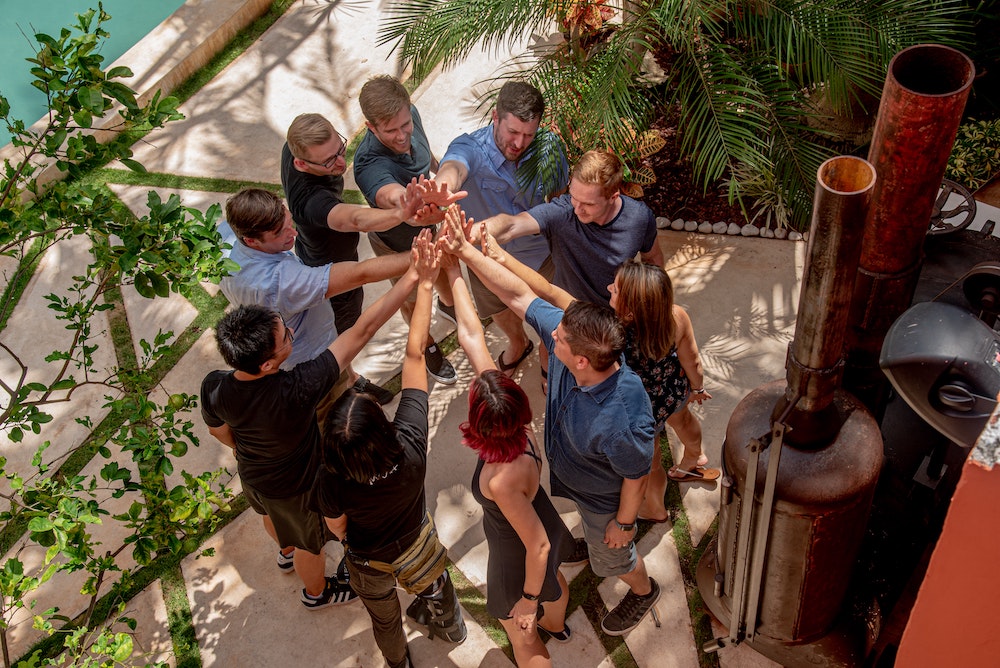
Wellness Icebreaker Questions
A common focus of many organizations is improving the wellbeing and general wellness of people on their team.
A dedicated workshop on various aspects of wellness can be an effective way to get people thinking more consciously about their wellbeing, and these wellness icebreaker questions can be a great way to get those sessions started!
- What’s guaranteed to make you smile?
- Describe your perfect relaxing day.
- Share a self-care ritual or activity that helps you recharge.
- What’s your favorite snack or comfort food?
- If you could have a wellness day at work, what activities would you include?
- Share a mindfulness or meditation technique that works for you.
- What’s your go-to method for relieving stress during a busy day?
- If you could have any wellness amenity in the office, what would it be?
- Share a wellness goal you’re currently working on.
- What’s your favorite way to stay active during the workweek?
- If you could take a wellness retreat anywhere in the world, where would it be?
- What’s one small change you’ve made to improve your overall well-being?
- What book or podcast has had a positive impact on your wellbeing and what was a major takeaway?
- What’s a wellness technique that doesn’t work for you and why?
Emotional intelligence and our overall wellbeing often go hand in hand. When we are more self aware and able to recongise our emotions, we can then take action, whether that’s taking time to check-in with ourselves or practice self care.
This blog post on emotional intelligence techniques is a trove of effective exercises you can use to help a team build their EQ skills. Want to go further? You might even run a self awareness workshop to help your team practice and build those skills as a group!
Tips for asking Good Icebreaker Questions
Whether you’re asking weird icebreaker questions about plans for the zombie apocalypse or going deeper, there are some best practices for asking effective questions that can help people feel safe, included and able to converse freely. Let’s take a look!
- Know Your Audience: Tailor your icebreaker questions to the preferences and demographics of your audience. Consider their professional backgrounds, interests, and cultural diversity.
- Balance Fun and Professionalism: Strike a balance between fostering a fun atmosphere and maintaining professionalism. Choose questions that are appropriate for the setting and the nature of the group.
- Test the Waters: Start with less personal or intense questions to gauge the comfort level of the group. Gradually progress to deeper or more creative inquiries as the atmosphere becomes more relaxed.
- Mix and Match: Incorporate a variety of icebreaker questions into your repertoire. This ensures that you have options suitable for different occasions and preferences.
- Be Mindful of Time: Consider the time available and the overall agenda. Icebreaker questions should be engaging but not overly time-consuming, especially in a work-related setting. The icebreaker you run during a week long training course can (and likely should) be more involved than the one you run for a weekly stand-up, for example.
- Encourage Active Listening: Emphasize the importance of active listening during icebreaker activities. This fosters a culture of respect and attentiveness within the group. Remember that the purpose of these activities is to create connection and this requires the presence of others in the group.
- Create a Safe Space: Establish an environment where participants feel comfortable sharing. Emphasize that there are no right or wrong answers, promoting a non-judgmental atmosphere.
- Make non-participation an option: Even when we know people quite well, we can’t possible know everything that’s going on for them or what has happened in their past. Some questions can be difficult or triggering for some people and in addition to carefully considering the questions you use, it’s also important that you leave space for people to non-participate or answer another question if they don’t feel comfortable.
By understanding what makes a good icebreaker question and following these tips, you can enhance the effectiveness of these prompts in your professional and social interactions.
Conclusion
Creating a powerful connection with another person often begins with a single good conversation.
Icebreaker questions serve as valuable tools for creating connections, fostering collaboration, and building a positive group dynamic. Whether you’re running a virtual workshop, a conference or a recurring team meeting, we hope these questions help you get your session off to a fun, engaging start.
Want to go further? Explore our selection of team building activities to discover experiential ways of building group connections. You can also find more examples of icebreakers in our comprehensive collection of effective icebreaker games.
Was there a game or question style we were missing in this post? Let us know in the comments below!
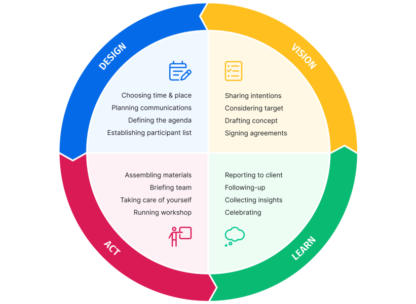

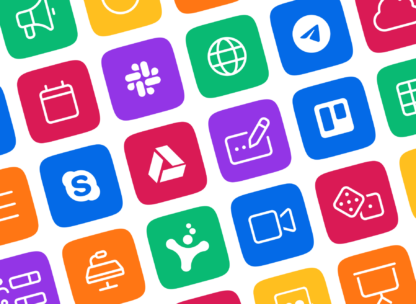
Leave a Comment